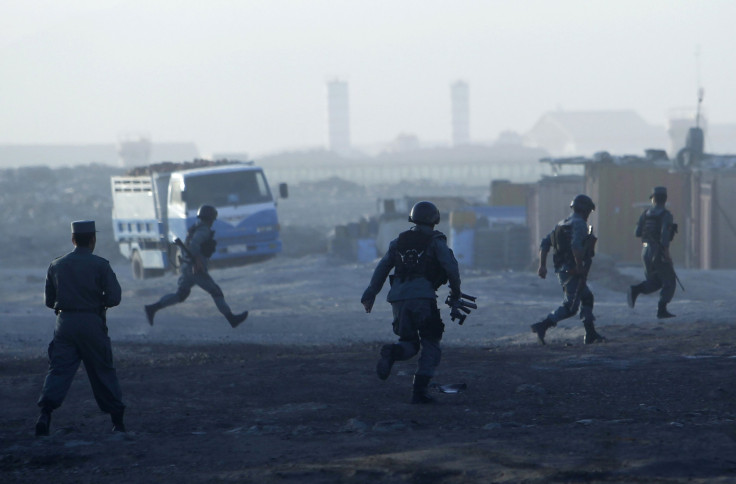Huge Afghan Forces Losses 'Not Sustainable,' According To US Commander

A top U.S. commander says the current casualty rate among Afghan government forces is unsustainable. Army Lt. Gen. Joseph Anderson, commander of the International Security Assistance Force Joint Command, told reporters Wednesday that the Afghans have suffered 9,000 fatalities since the beginning of 2013, compared to 2,346 U.S. troops lost since the beginning of the war in 2001.
Anderson said the Afghans need to improve on basic military operations. They "have to also work everything fundamentally, particularly on the police side, with tactics, techniques, procedures for how they protect themselves … to make sure they have less casualties,” said the top U.S. general in the country.
The loss rate is unsustainable, according to Anderson, because the force is not recruiting fast enough. Currently, only 89 percent of Afghan police and 81 percent of army jobs are being filled, according to a report in Stars and Stripes. The losses are also being felt harder as the force struggles to deal with a high AWOL rate.
“Their first priority right now is to get their recruiting back up,” Anderson said, while also mentioning that the force needs to cope better with improvised explosive devices, medical evacuation from the battlefield and medical treatment.
“All those things have to continue to improve to reduce those [casualty] numbers, because those numbers are not sustainable in the long term,” he said.
The high casualty rate comes at a difficult time for Afghan forces, as they prepare to take over combat operations from the U.S.-led coalition at the turn of the year. While 20,000 U.S. troops are currently stationed in the country, that number drop to 9,800 by the end of December of this year and they are to completely disappear by the end of 2016.
It raises concerns about the ability of the Afghan military to remain a fighting force against the Taliban without U.S. assistance. However, Anderson did say the Afghans were performing well under the most difficult circumstances.
“The Afghan National Security Forces are winning. And this is a hugely capable fighting force who have been holding their ground against the enemy,” he told reporters, citing successes in areas across the country.
Earlier this week U.S. military leaders hinted that they might ask for more U.S. troops to remain after 2014.
“Do I come back and do I alert my leadership and say we are coming down to this number, we need to hold a little bit longer … and we need more NATO forces in certain locations for longer?” Gen. John Campbell said in a phone interview with Foreign Policy magazine. “I’ve got to do that analysis, and we’re just starting that now.”
© Copyright IBTimes 2025. All rights reserved.






















